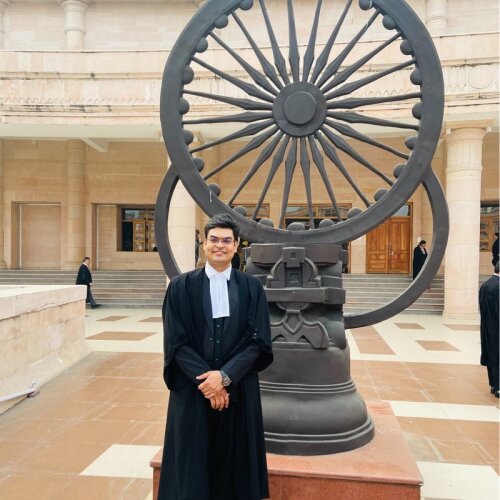Best Estate Planning Lawyers in Lucknow
Share your needs with us, get contacted by law firms.
Free. Takes 2 min.
List of the best lawyers in Lucknow, India
About Estate Planning Law in Lucknow, India
Estate Planning refers to the process of creating a plan to distribute your wealth and assets after your death. In Lucknow, India, this typically includes writing a will, setting up trusts, retirement and insurance provisions, and considering tax implications. Estate planning in India is governed by several acts such as the Indian Succession Act, Hindu Succession Act, and the Indian Trusts Act. The planning process is often complex and requires legal consultation to ensure all aspects are correctly addressed.
Why You May Need a Lawyer
Whether you are planning your estate or dealing with the estate of a deceased loved one, legal advice is often necessary. Situations that require a lawyer might include writing a will, setting up a trust, dealing with tax implications, and resolving disputes over inheritance. Lawyers can provide valuable advice, ensure all procedures are correctly followed, and represent your interests in any disputes or legal complications that arise.
Local Laws Overview
In Lucknow, it is important to note that property and inheritance laws vary based on religion. For Hindus, the main legislative acts are the Hindu Succession Act and Hindu Undivided Family act. For Muslims, the Muslim Personal Law (Shariat) applies. For those of other or no religion, the Indian Succession Act generally applies. Tax implications and property rights are crucial components to consider in estate planning. India also has specific laws concerning guardianship of minors and management of the person's assets in their absence or incapacity that are crucial to estate planning. The Indian Trusts Act provides for creating Trusts as part of estate planning.
Frequently Asked Questions
1. Should I write a will and if so, how?
Yes, it is advisable to write a will to state your wishes clearly and avoid any potential disputes. Usually a lawyer drafts a will to ensure it meets all legal standards and fully represents your intentions.
2. What if I die without a will?
If a person dies without a valid will, they die 'intestate'. In this case, their property is distributed according to the prescribed laws of succession, which vary based on religion.
3. Can I change my will?
Yes, a will can be altered or completely replaced at any time during your lifetime, provided you are mentally sound while doing it.
4. What is a Trust and how does it work?
A Trust is a legal entity you can set up to manage your assets. A Trust can be useful for reducing estate taxes and avoiding probate court. A Trust is managed by a trustee for the benefit of the trust's beneficiaries.
5. What are the tax implications of Estate Planning?
There can be significant tax implications in Estate Planning, particularly regarding Gift Tax and Inheritance Tax. It's best to consult with a lawyer or tax specialist to understand these implications and plan your estate accordingly.
Additional Resources
For more information and help, consider reaching out to the Lucknow District Bar Association, or the Uttar Pradesh Bar Council. Government websites like the Ministry of Law and Justice also provide valuable resources.
Next Steps
If you need legal assistance in Estate Planning in Lucknow, consider consulting a lawyer specialized in Estate Planning. Make a list of your assets, your beneficiaries, and your wishes regarding the distribution of your properties. It is also useful to think about potential guardians for any minor children. Your lawyer can help guide you through the next steps of writing a will, setting up trusts, and ensuring all legal requirements are met.
Lawzana helps you find the best lawyers and law firms in Lucknow through a curated and pre-screened list of qualified legal professionals. Our platform offers rankings and detailed profiles of attorneys and law firms, allowing you to compare based on practice areas, including Estate Planning, experience, and client feedback.
Each profile includes a description of the firm's areas of practice, client reviews, team members and partners, year of establishment, spoken languages, office locations, contact information, social media presence, and any published articles or resources. Most firms on our platform speak English and are experienced in both local and international legal matters.
Get a quote from top-rated law firms in Lucknow, India — quickly, securely, and without unnecessary hassle.
Disclaimer:
The information provided on this page is for general informational purposes only and does not constitute legal advice. While we strive to ensure the accuracy and relevance of the content, legal information may change over time, and interpretations of the law can vary. You should always consult with a qualified legal professional for advice specific to your situation.
We disclaim all liability for actions taken or not taken based on the content of this page. If you believe any information is incorrect or outdated, please contact us, and we will review and update it where appropriate.










